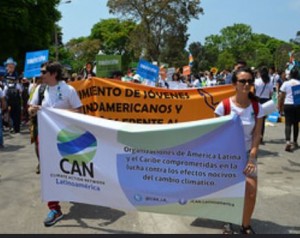As recently reported by the International Energy Agency, fossil fuel subsidies in 2012 came in at US $544 billion – five times greater than those for renewable energy at US $101 billion. The IMF puts the estimate at an astounding US $2 trillion when indirect subsidies are taken into account.
Taxpayers around the world are, effectively, paying to destabilize the climate. Subsidies are granted in rich countries to their coal, oil and gas industries, and also in poor countries to make fuel for middle class car owners cheaper while worsening air pollution and taking desperately needed funds from health care, education and housing.
In Latin America, fossil fuels are cheapest in Venezuela, Bolivia and Ecuador. There are some sad ironies here – Venezuela has a Ministry which has among its mandates the implementation of “eco-socialism”; the other two have codified respect for Pacha Mama and Rights of Nature in their constitutions. Other countries in Latin America, such as Mexico, also provide billions in subsidies for the production and consumption of fossil fuels.
Subsidies generally benefit those who use the most fuel – not the poor. If the substantial resources currently devoted to these subsidies were spent on improving public services or directly transferred to the poor, the social impact would be positive.
While rich countries must take the lead in stopping exploration and production subsidies, all countries can play a role in efforts to stop funding fossil fuels. Latin America could play a leadership role in this effort. Civil society will continue to work for an end to perverse fossil fuel subsidies. But note, given the importance of access to modern energy services, social safety nets must be in place for the most economically disadvantaged.
If funds squandered on fossil fuel subsidies – especially production subsidies – were redirected to investments in energy efficiency and renewable energy as well as other much needed health and education services, we would have a double win for people and the climate.

![]()